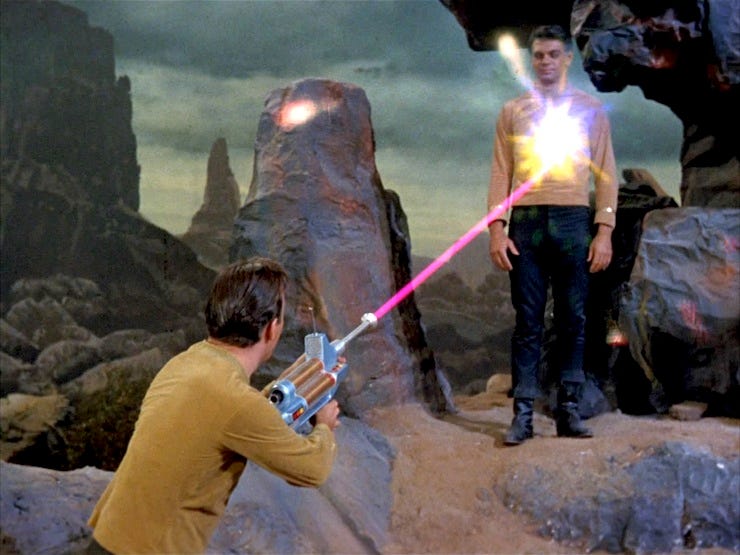What late people don’t understand about us on-time people is that we hate you and the reason why we hate you is that it’s so easy to be on time. You just have to be early and early lasts for hours. And on-time just lasts A SECOND and then you’re late... forever. — Mike Birbiglia
Any fool can know. The point is to understand. ― Albert Einstein
I know the panic of waking up five minutes before, hung over, unshowered, no clean clothes. Before what? A midterm, armed with enough information to fill maybe a quarter of the blue book—what indeed does Spinoza mean that we are modes of substance?; an eight-hour shift scrubbing plates and dishes until your arms ache and your shirtfront and the top of your pants are soaking wet and crusted in grease and marinara sauce; a departmental retreat complete with breakout rooms and a brainstorming session with your randomly selected and mildly unpleasant work group, everyone earnestly scraping the bankrupt mental barrel for just one more couplet in a long rap about the proper use of office supplies. You just set your teeth and do the best you can with whatever you’ve got to either get it done or avoid biting anyone’s head off before the time passes. Focus on your breathing, however ragged it might be.
Sunday afternoon found me in repose upon the divan, idly digesting nondescript video fluff when I was suddenly struck with the notion that my daughter had sailed silently past the start of her shift scooping ice cream for rich folks. Not to say that this is a task of world historic importance, but she gotta do it if she wants to get paid, and she gotta get paid if she wants to go to college next fall, and she gotta go to college if she ever wants to stop scooping ice cream for rich folks. There are stakes at stake here, people.
Rapping on her door I found her sound asleep. I gently laid the time upon her and she went up in a blaze like the Maid of Orleans but with orange hair and a greater propensity for blasphemy—a torrent of which emerged at this particular juncture. I lurked in the living room, listening as she called her boss and strove to mitigate the damage. As it happens, this was the second day in a row she’d had to ask special dispensation of this woman whom I know only as an implausible-sounding name. We’ll call her Persephorine. Does Persephonina know that my kid, skewered like a butterfly at the intersection of ADHD and pandemic, is taking a gap year to save money and learn enough adulting to navigate college on her own at a distance of over thirteen hundred miles from her aging, fretting amanuenses? Would she care if she did know? Is she in fact party to the continuing education of my daughter, or is Persoloma just the first of many lee shores? Will my girl claw to windward or will she miss stays?
I have no idea how any of this will turn out—unlike y’all, I watch his drama unfold in real time, without literary stylings, but like y’all, it’s a brand new episode every day. You don’t get to rehearse parenting; they just tell you to read Dr. Spock and then they dump you into game seven of the World Series, except it goes on for decades. So I got to thinking, as I often do, of the only experience I have that’s even possibly relevant: my own misspent youth.
In the first October after I graduated high school I was barreling toward a rapid expulsion from the University of Alabama in Huntsville, a feat of stunning irresponsibility for which my only excuse is that, courtesy of my roommate, I had cable TV for the first time in my life and decided to switch my major to late night HBO. Turns out when you don’t go to class at all, they give you failing grades. Intellectually this was crystal clear to me and yet I didn’t go. Why not? I really couldn’t tell you. I just know that whatever stopped me could stop her. I can see it moving around inside her skull like a roach trapped under a sheet.
Funny thing though, on further reflection I realized this wasn’t exactly the corresponding moment in our lives. When I started college I was only barely eighteen. My birthday in early September was one of those ones that put a person either side of the cutoff point for starting school. You’re either a year older than everyone or a year younger. I was younger.
My daughter, a November baby, falls firmly on the other side. She’s approaching nineteen, not eighteen.
So where was I a year after my abortive attempt at college? Well, my come-apart was fairly short, mercifully. I spent the rest of that school year and all of the next working: getting myself out the door on time, keeping myself and my clothes washed1, banking my money—acting, in short, somewhat like a semi-functional member of society. I was far from perfect; a large portion of the money I saved I spent on a Volkswagen bus that I drove around without brake lights, license plate, or an actual, physical dashboard until the day, two weeks after I purchased it, that I drove over railroad tracks too fast and the engine bounced off its mounts and landed on the street. Now I can say I was hard at work making stories for later essays but back then it was just a series of dumb choices. None of them were fatal though, and somewhere amid the foolishness I applied again to school, and to school I would return in the following fall, to remain until I was let loose with a degree for my trouble.
It’s tempting to assume she’s going through something perfectly analogous and will land reasonably close to where I did, without incurring all the academic deficits my behavior precipitated. This is entirely magical thinking but at the very least my own story gives flesh to the idea that change is not just possible but mandatory. There’s no corollary that says it’s going to be good change, but stasis is no better than bad change, so I reckon I can at least take solace in the fact that ship is moving and today is a new day.
I think we tend to think of wisdom as something akin to prudence—making wise choices—but really it’s a matter of perspective. You can’t have the wisdom of fifty until you’re fifty—it’s simply impossible to look out upon fifty years done gone when you’re twenty. By the same token, however, I can still only see the not-quite two decades of her life, and that, in a nutshell, is the most goddamn difficult thing about being a parent.
Star Trek: Charlie X / Where No Man Has Gone Before
Far be it from me to undercut my own project two weeks in, but “Charlie X” and “Where No Man Has Gone Before” are essentially the same episode, so you’ll pardon me if I don’t write the same essay twice. I should just send you to watch “It's a Good Life” from The Twilight Zone because frankly it’s also the same story, just not in space. In both episodes the intrepid crew of the starship Enterprise encounter godlike beings: “Charlie X” gives us a 17-year old boy who spent his youth stranded on a deserted planet. In “No Man” it’s a pair of Enterprise crew members, Lt. Cmdr. Gary Mitchell and Dr. Elizabeth Dehner (Sally Kellerman just a few short years before she created Hotlips Houlihan in Robert Altman’s M*A*S*H), who are granted their powers when the ship flies through a mysterious (and never explained) energy field that lies at the edge of the galaxy.
The antagonists in each case quickly reach a dizzying pinnacle from which the actions of Kirk and company appear puny and aggravating, much as I regard the behavior of my quartet of felines. “Charlie X” solves this crisis with a cheap deus ex machina: Charlie, we learn, was granted his powers by a race of disembodied beings in order to facilitate his survival alone on a hostile world. Recognizing that he won’t easily mesh with beings who insist he can’t go around slapping women on the ass, they manage to arrive just in the nick of time to whisk him back to their ethereal realm where asses are in singularly short supply.
The resolution of “No Man” hinges on the lingering humanity of Dehner, afflicted the same as Mitchell but for whatever reason slower to fall into megalomania. I suspect that there is a nod here, unconscious perhaps, to the historic paucity of female tyrants. During the climactic fistfight on the planet where Kirk had hoped to maroon the pair of them, Dehner realizes the immorality of Mitchell’s behavior and weighs in on the altercation, zapping him with mind rays until he becomes temporarily vulnerable. Kirk grabs the initiative, dislodging a giant rock with a ludicrous prop phaser rifle2 and smashing Mitchell like a gnat.
I’m not sure either of these episodes have anything more significant to say other than the hoary old saw that absolute power corrupts absolutely, though “Charlie X” does delve into the volatile mixture of absolute power with teenage angst. Charlie, played by the 26-year old Robert Walker, is awkward and hormonal, making clumsy attempts to gain the favor of the ostensibly comely Ensign Rand, whose tenure on this show didn’t end soon enough. Unfortunately the whole show is awkward, so Walker’s performance, which is actually pretty good for a guy playing someone eight years his junior, kinda merges into the general cringeyness. Rand can’t quite bring herself to address Charlie’s insouciant sexual harassment head on, coming off like a space Victorian aflutter with shame at an exposed ankle before sending him off to talk to Kirk, who is transparently cast as the designated parent in this episode.
In return, William Shatner gets a shirtless scene, in which he attempts to demonstrate martial arts techniques to Charlie in a sparse, underequipped gym that’s probably really just every other room on the spacecraft with the control panels wheeled out and a mat on the floor. It’s apparent that someone thought the 35-year old Shatner was a beefcake but really he’s built more like a glazed ham—a featureless barrel of meat with the same proportion across the pecs as the belly. Robert Walker has the odious task of touching this bare, slightly glistening tube of Shatner in the course of their exercises, and he does so without flinching or stifling an urge to vomit, clearly displaying his credentials as a master thespian.
Curiously, “Where No Man Has Gone Before” also features a shirtless Kirk—his garment is torn during the final fight with Mitchell. This would go on to be a staple of the show, which was either supposed to be part of its appeal or was a deficiency it was lucky to overcome. In any event, we know this much: Lucille Ball watched this episode, saw the shirtless Shatner, and was compelled to become one of the great champions of Star Trek.
“No Man” aired third in the show’s first season but was actually a pilot. The second pilot, in fact. The original pilot was declined by NBC, which under ordinary circumstances would have meant it would have forever remained the only known artifact of Star Trek, another failed show idea. But before it could fade into oblivion Lucille Ball stepped in to request a second pilot, a very unusual development. On the strength of this pilot and with the weight of Desilu Productions behind it, Star Trek was rescued from despair. It’s hard to imagine what Ball saw—“No Man” is pretty forgettable except for the silver contact lenses worn by Mitchell and Dehner, which are mainly interesting because they are clearly irritating to the actors; and the odd behavior of Mister Spock, who has not yet settled into his character and speaks all his lines in a stentorian bellow reminiscent of Sergeant Hartman in Full Metal Jacket. As a kid I enjoyed the scenes on the planet Delta Vega, especially the Christmas-future style gravestone and pit Mitchell conjures for Kirk prior to the final fight. Looking at it now all I can say is that the matte painting background looks like the cover of a 1950s pulp sci-fi novel, the sort of thing you might expect to see in George McFly’s bedroom. The gravestone, moreover, is obviously foam, as are the rocks and possibly Kirk himself.
There is charm in the hokeyness of it all, but it’s hard to imagine that being the objective. I can only assume that underneath that suit Desi Arnaz was the real beefcake and Luce just wanted a little change in her life.
Ok, my mom washed my clothes, but this time, having experienced clothelessness, I was alert to the fact.
It’s not a bad-looking implement, but it lacks heft and in its weightlessness tends to suggest “awesome toy” more than “feared weapon.”







🤢Shirtless Shatner (Damn it, Fletch. Now that image is stuck in my head.)
Also, I hope the ice cream scooper is still scooping.😬🤞
Loved this one, Fletch.